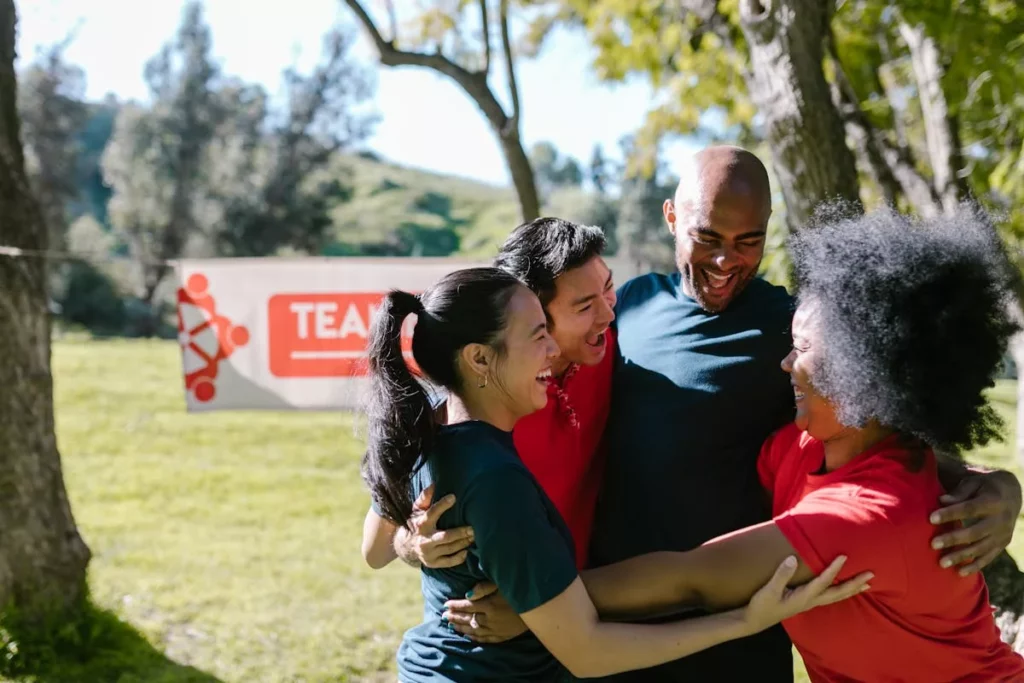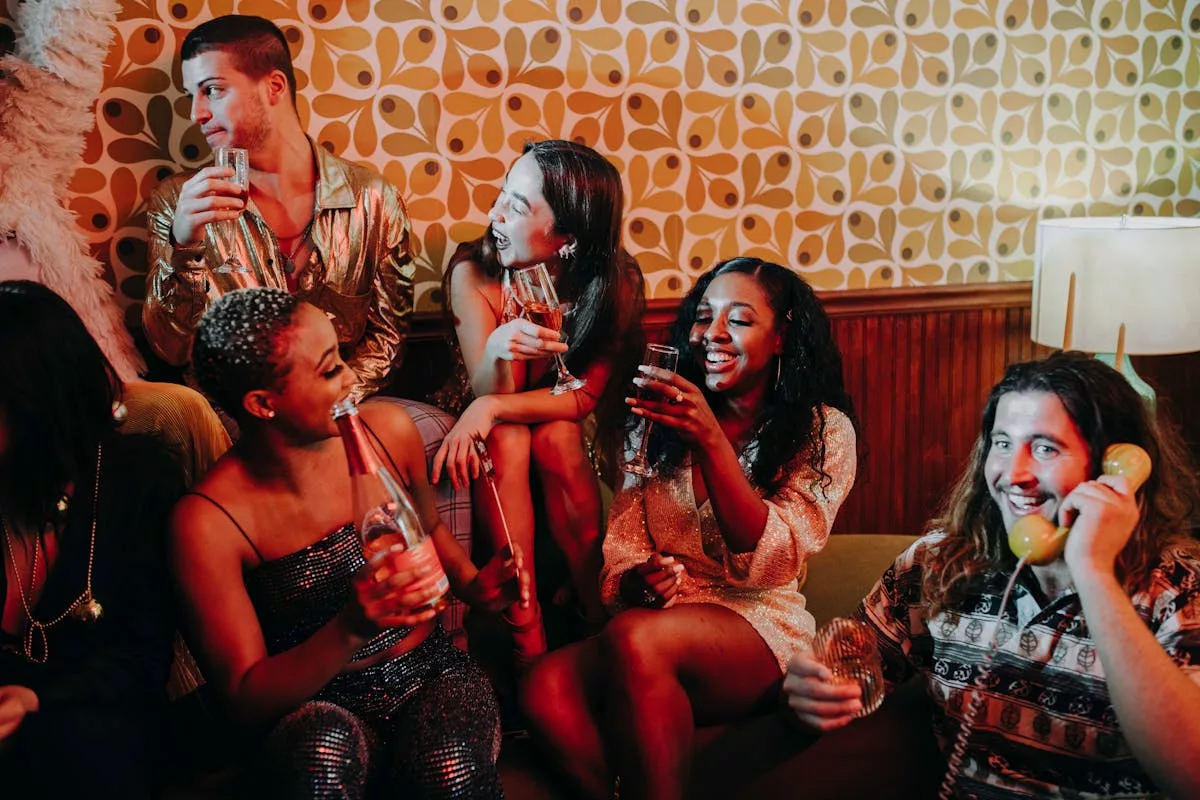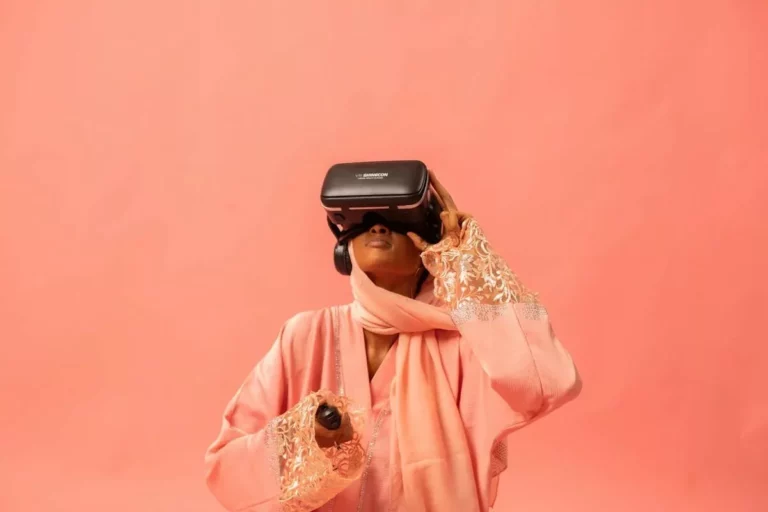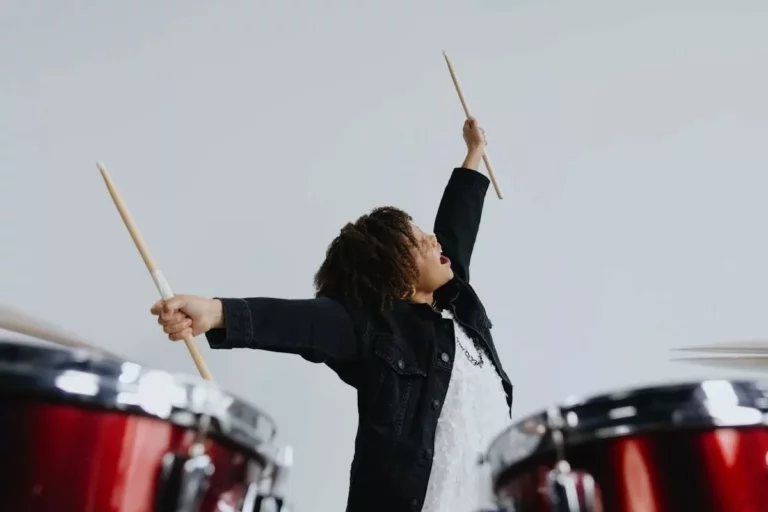The landscape of the entertainment industry is increasingly being shaped by diverse talents in the entertainment industry, reflecting a broad spectrum of cultures, identities, and experiences. Did you know that films and shows with diverse casts and creators not only resonate more with audiences but also tend to outperform their less inclusive counterparts at the box office? As audiences become more vocal about their demand for representation, the industry is responding by prioritizing authentic narratives that showcase a rich array of voices. This shift is not just beneficial for the creators; it enriches the overall storytelling experience, inviting viewers to connect with content in profound ways. In this blog post, we’ll explore the importance of celebrating diverse talents, the impact they have, and how they are shaping the future of entertainment.
Understanding Diverse Talents in the Entertainment Industry
Diversity in the entertainment industry encompasses a wide range of cultural, artistic, and personal backgrounds. When discussing diverse talents in the entertainment industry, we recognize the significance of representation across different dimensions including race, gender, sexual orientation, and ability. This diversity not only enriches the content we consume but also serves as a mirror that reflects the society we live in.
The significance of inclusivity in entertainment cannot be overstated. Diverse talents bring unique stories and perspectives that challenge the status quo, helping to broaden our understanding and appreciation of different cultures. Here are a few reasons why embracing diverse talents is vital:
- Cultural Representation: Reflects the rich tapestry of human experiences.
- Broader Appeal: Attracts diverse audiences, thus increasing market reach.
- Innovation: Promotes creativity by combining various artistic influences.
- Social Change: Challenges stereotypes and dismantles cultural barriers.
In summary, the celebration of diverse talents in the entertainment industry is not just a trend; it is a necessary evolution towards a more inclusive and vibrant cultural landscape. As we continue to recognize and support these diverse voices, the stories we share will become richer and more representative of our world’s multifaceted nature.
For more insights on diversity in the entertainment sector, you can refer to Warner Bros. for their initiatives and commitments towards inclusivity.
The Impact of Diverse Talents In The Entertainment Industry
Diverse talents in the entertainment industry have a profound impact on not only the content produced but also on societal perceptions and cultural exchange. When varied perspectives are showcased, they contribute to a richer storytelling experience that can resonate with a wider audience.
Cultural Enrichment
One of the most significant impacts of diversifying talents is the cultural enrichment it brings. Films, music, and television shows that feature a mix of backgrounds enable audiences to experience different cultures. This exposure fosters understanding and appreciation, bridging gaps between diverse groups.
Broader Audience Reach
By showcasing diverse talents, entertainment companies can tap into global markets and connect with audiences who seek representation. This leads to:
- Increased viewer engagement
- Higher box office sales
- Boosted streaming numbers
This broader reach enhances the industry’s financial viability while fulfilling the audience’s desire for authentic representation.
Enhanced Creativity and Innovation
The introduction of diverse talents into creative roles stimulates innovation in storytelling techniques and artistic expression. Consider how different cultural influences can inspire:
- Unique narratives
- Varied musical styles
- Fresh visual aesthetics
By encouraging collaboration among diverse creators, the industry can produce groundbreaking content that attracts attention and sparks dialogue.
Celebrating diverse talents in the entertainment industry is vital not just for artistic exploration but also for creating an inclusive environment that nurtures future generations of artists. Companies like Netflix are leading the way in promoting diverse talent, demonstrating the positive change that can arise from inclusivity.
Challenges Faced by Diverse Talents
While the conversation around diverse talents in the entertainment industry has gained momentum, many artists and creators still face significant challenges in their pursuit of success. These barriers can hinder not only their individual careers but also the overall progress towards inclusivity in the industry.
Systemic Barriers
Many diverse talents encounter systemic obstacles that can act as roadblocks in their careers. These barriers may include:
- Limited Access to Opportunities: Underrepresented groups often have less access to key roles and projects.
- Stereotyping: Talent may be pigeonholed into specific roles that do not fully showcase their abilities.
- Network Limitations: Many Hollywood connections are still shaped by existing networks that favor established (often non-diverse) talent.
Underrepresentation in Key Roles
Despite progress, underrepresentation persists in many facets of the industry. This includes:
- Directors and Producers: A lack of diversity behind the camera can lead to cookie-cutter narratives that overlook nuanced stories.
- Writers and Screenplays: Diverse voices in scriptwriting are crucial for authentic representation, yet many writers from minority backgrounds struggle to break through.
Cultural Misappropriation
Another challenge is the risk of cultural misappropriation, where stories and characters from diverse backgrounds are misrepresented or exploited by creators who lack genuine understanding. This not only undermines authentic voices but also harms cultural integrity.
Addressing these challenges requires concerted efforts from industry leaders, studios, and audiences. Initiatives fostering mentorship, equitable opportunities, and authentic engagements can help pave the way for a more inclusive environment.
To learn more about how industry leaders are tackling these challenges, you can visit Disney’s Diversity and Inclusion page, which outlines their ongoing commitment to promoting diverse talents in the entertainment landscape.
The Role of Organizations and Initiatives
Organizations and initiatives dedicated to promoting diverse talents in the entertainment industry play a crucial role in driving systemic change. Their efforts can significantly influence how diversity is approached, represented, and integrated into various forms of media.
Efforts to Promote Diversity
Numerous organizations have emerged to advocate for increased representation and support for underrepresented groups. These efforts may include:
- Mentorship Programs: Pairing emerging talents with industry veterans to navigate career challenges.
- Funding and Grants: Providing financial support to projects that prioritize diversity in storytelling.
- Networking Events: Organizing gatherings for diverse creators to foster connections and collaboration.
Case Studies of Successful Programs
Several prominent initiatives have set noteworthy examples in the industry, including:
- The Sundance Institute’s ‘Merian C. Cooper Fellowship’: A program designed to support underrepresented filmmakers.
- Color Of Change: Focused on advocating for racial equality in media representation, influencing policy and industry standards.
Industry Partnerships
Collaboration between creative organizations and major production companies is essential for bridging gaps in representation. By aligning with industry leaders, these organizations can amplify their impact and reach a wider audience. For instance:
- The Diversity in Media Coalition: A partnership between several organizations aimed at increasing measurable diversity across film and television.
- Outfest: An organization dedicated to showcasing LGBTQ+ films that also partners with studios to foster inclusivity.
Supporting these initiatives not only helps diverse talents in the entertainment industry but also enriches the cultural landscape as a whole. To explore initiatives fostering diversity further, you can check out Paramount Pictures and their commitment to promoting diverse voices in film and entertainment.
The Future of Diverse Talents in Entertainment
As the conversation around diverse talents in the entertainment industry continues to evolve, the future holds promise for greater inclusion and representation. Industry trends suggest that audiences increasingly seek authentic narratives and diverse perspectives, compelling creators and executives to adapt.
Trends Shaping the Industry
Several trends indicate a move towards a more diverse entertainment landscape:
- Increased Consumer Demand: Audiences are more vocal and supportive of content that features diverse talents, driving studios to reassess their projects.
- Data-Driven Decisions: Companies are leveraging analytics to identify the profitability of diverse programming, leading to more diverse casting and storytelling.
- Cross-Cultural Collaborations: Partnerships between international filmmakers and local creatives encourage a blending of styles and narratives.
Continued Advocacy for Inclusivity
Advocating for inclusivity requires ongoing commitment from all stakeholders in the entertainment ecosystem. This includes:
- Training Programs: Implementing workshops that educate industry professionals on the importance of diversity and inclusion.
- Transparent Hiring Practices: Establishing guidelines for equitable hiring processes that prioritize diverse candidates.
- Support for Underrepresented Groups: Creating platforms that amplify the voices and stories of marginalized communities.
The entertainment industry stands at a pivotal moment where embracing diverse talents is not just a moral imperative but a lucrative opportunity. Companies like Sony Pictures are actively working to create pathways for diverse creators, signaling a shift towards a richer, more inclusive future in entertainment.
By recognizing the value of diverse talents, the industry can continue to deliver compelling narratives that resonate with audiences worldwide.
How Audiences Can Support Diverse Talents
As consumers of entertainment, audiences play a vital role in promoting diverse talents in the entertainment industry. Supporting diverse narratives not only encourages creators but also helps to foster a more inclusive environment for future productions.
Ways to Champion Diversity
Fans can take several actions to encourage and support diverse talents:
- Choose Inclusive Content: Opt for films, shows, and music that highlight diverse creators and stories. Your viewing choices have power.
- Engage on Social Media: Follow and promote artists, filmmakers, and organizations that advocate for diversity. Sharing their work increases visibility and support.
- Participate in Festivals and Events: Attend events that celebrate diverse cinema and arts, such as film festivals focusing on underrepresented filmmakers.
Encouraging Content Consumption
To cultivate a culture that values diverse talents, audiences can:
- Write Reviews: Positive reviews and recommendations for diverse films and shows can influence other viewers and streaming platforms.
- Demand More Representation: Use social media platforms to voice the need for more diverse stories. Join movements that call for inclusive casting and storytelling.
- Support Merchandising: Purchase merchandise from diverse artists or productions, which can help sustain their careers and projects.
By actively supporting diverse talents in the entertainment industry, audiences can help ensure that a broader range of stories is told and recognized. For further insights into fostering inclusivity, check out Amazon Studios, which emphasizes diversity in its productions and initiatives.
Celebrating Diversity in the Arts
Celebrating diverse talents in the entertainment industry is essential not only for enhancing creativity but also for ensuring representation across various media. Events and initiatives that highlight diversity can significantly impact public awareness and appreciation.
Significance of Celebration
Recognizing and celebrating diverse talents helps to:
- Validating Experiences: By showcasing a wide array of backgrounds, the industry acknowledges and validates the experiences of various communities.
- Inspiring Future Artists: Visibility of diverse talents encourages aspiring artists to pursue their dreams, knowing there is a space for their stories.
- Fostering Community Engagement: Celebratory events promote collaboration among artists, stakeholders, and audiences, establishing a sense of community.
Key Events Highlighting Diverse Talents
Numerous events play a pivotal role in celebrating diversity, such as:
- Film Festivals: Events like the Pan African Film Festival and the Outfest LA showcase films that represent minority voices in the industry.
- Music Festivals: Events like AfroPunk and Lollapalooza have dedicated stages and programming to highlight diverse musical talents.
- Art Exhibits: Galleries and museums often host exhibitions that focus on celebrating artists from underrepresented communities.
Engagement Opportunities
Audiences can actively participate in these celebrations by:
- Attending events and supporting diverse creators.
- Participating in discussions and panels to better understand diverse experiences in the arts.
- Sharing their experiences and stories in relation to diverse content.
By engaging with these events, audiences not only enrich their own lives but also contribute to a thriving ecosystem that values diverse talents in the entertainment industry. For more information on initiatives focused on diversity in the arts, visit WarnerMedia, which emphasizes the importance of inclusion within their business practices.
The Importance of Representation
In the context of diverse talents in the entertainment industry, representation plays a vital role in shaping societal narratives and perceptions. When various cultures and identities are accurately portrayed, it not only enriches content but also fosters understanding and empathy among audiences.
What Representation Achieves
Representation contributes significantly to the entertainment landscape by:
- Reflecting Reality: Authentic portrayals help audiences see themselves in the stories being told, promoting inclusivity and relatability.
- Shaping Perceptions: Influencing how societies view minority groups can help dismantle stereotypes and challenge prejudiced views.
- Encouraging Dialogue: Diverse narratives spark conversations about cultural issues and experiences, leading to greater awareness and understanding.
How Representation Looks in Media
Representation manifests in various ways within the industry, including:
- Character Diversity: Inclusion of characters from different racial, ethnic, and cultural backgrounds within films and shows.
- Behind-the-Scenes Representation: Diverse directors, producers, and writers lead to more authentic storytelling.
- Storytelling: Narratives that explore varied themes and experiences, thus reflecting a richer reality.
The Impact on Audiences
Audiences benefit from representation by:
- Developing a more nuanced understanding of different cultures and lifestyles.
- Feeling empowered by seeing their own stories and experiences reflected on screen.
- Gaining access to a broader range of artistic expressions.
To actively support and encourage greater representation, audiences can turn to platforms that prioritize diverse talents. For more information on how major studios are addressing representation, visit Netflix, which emphasizes the importance of inclusivity in its programming and productions.
The Power of Collaboration
Collaboration among diverse talents in the entertainment industry significantly enhances the creative process, resulting in richer content and innovative storytelling. When individuals from varied backgrounds come together, they bring unique perspectives that can transform conventional narratives into groundbreaking works of art.
Benefits of Collaborative Efforts
Collaboration empowers creators by providing distinct advantages, such as:
- Cross-Cultural Insights: Diverse teams generate a broader range of ideas, fostering a deeper understanding of global issues and cultural nuances.
- Enhanced Creativity: Combining different artistic styles and approaches leads to innovative expressions that challenge the status quo.
- Strengthened Networks: Collaborating helps build relationships across communities, facilitating future partnerships and opportunities.
Key Areas for Collaboration
Successful collaboration can be seen across different aspects of the entertainment industry:
- Film Projects: Joint ventures between filmmakers from various cultural backgrounds create more authentic and relatable films.
- Music Collaborations: Artists from different genres or cultural influences often create crossover hits that appeal to wider audiences.
- Television Formats: Innovative shows that bring together writers and directors from diverse backgrounds result in unique storytelling techniques.

Promoting Collaborative Initiatives
Stakeholders in the entertainment industry can take measures to encourage collaboration:
- Create Inclusive Platforms: Host workshops and events that focus on networking among diverse talents.
- Support Collective Projects: Fund initiatives where multiple diverse creators can collaborate on specific projects or themes.
- Showcase Collaborative Works: Celebrate projects that exemplify successful collaboration through awards and recognition.
To explore initiatives focused on fostering collaboration among diverse talents, consider visiting NBCUniversal, which is dedicated to promoting diversity and collaboration within its myriad productions and creative efforts.
What are diverse talents in the entertainment industry?
Diverse talents in the entertainment industry refer to artists, creators, and professionals from various backgrounds, including different races, ethnicities, genders, sexual orientations, and abilities. These talents contribute unique perspectives and experiences that enrich storytelling and representation across film, television, music, and other art forms.
Why is diversity important in entertainment?
Diversity is important in entertainment because it fosters authenticity and relatability, allowing audiences to see their own experiences reflected in the content they consume. Moreover, diverse stories challenge stereotypes and broaden cultural understanding, ultimately enriching the societal narrative and fostering empathy among viewers.
How can audiences support diverse talents?
Audiences can support diverse talents by choosing to consume media that prioritizes representation, engaging with diverse creators on social media, and participating in events that celebrate underrepresented voices. Additionally, writing reviews and promoting inclusive content can also help in amplifying diverse narratives.
What challenges do diverse talents face in the industry?
Despite progress, diverse talents often face systemic barriers such as limited access to key roles, typecasting, and underrepresentation in crucial decision-making positions. These challenges can hinder their ability to share their unique stories and perspectives, making it essential to address these issues for a more inclusive industry.
What initiatives are in place to promote diversity in entertainment?
Numerous initiatives aim to promote diversity in entertainment, including mentorship programs, diversity grants, and organizations focused on advocacy and representation. Major companies like Netflix and Amazon have launched programs to highlight underrepresented voices, and film festivals often showcase works by diverse filmmakers to encourage wider acceptance and exposure.
To dive deeper into the world of diverse storytelling, check out our article on Exciting Film Festival Trailers and Teasers for a glimpse of the innovative films highlighting unique voices.





